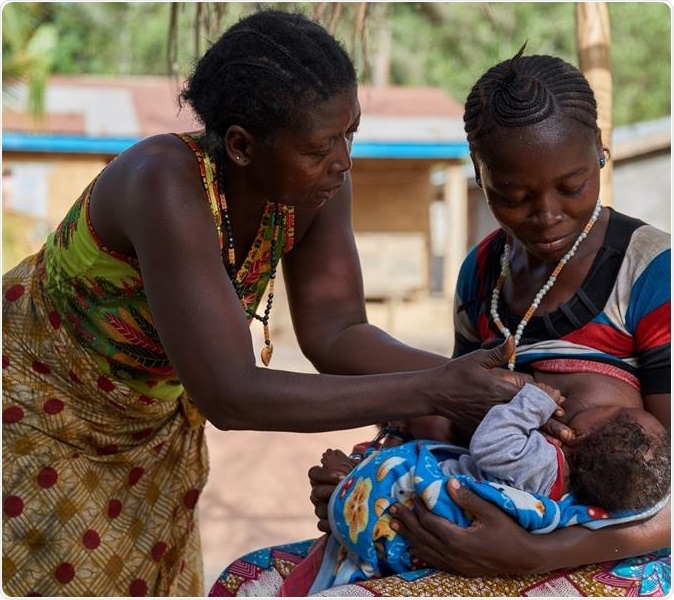
60 percent not breastfed in the first hour of life
All babies should be put to their mother’s breast within an hour of their birth for breast feeding recommends the World Health Organization and UNICEF. The first milk or the colostrum is known to have several health and nutritional benefits for the baby. A new report has found that nearly 60 percent of the babies are not breast fed within the first hour after their birth. This raises their risk of later illness and even death.

Image Credit: UNICEF
Recommendations suggest that exclusive breastfeeding should continue until six months of the baby’s age. While it protects mothers from the risk of breast cancer, it also provides antibodies and nutrients to the baby that would protect it from disease and malnutrition. Breastfeeding prevents childhood obesity and the skin contact of the infant with the mother provides it with healthy microbes that help them develop their immune system.
This new report called “Capture the Moment” shows that unlike recommended breastfeeding initiation is delayed in many babies. Authors write, “When breastfeeding is delayed after birth, the consequences can be life-threatening – and the longer newborns are left waiting, the greater the risk. Improving breastfeeding practices could save the lives of more than 800,000 children under five every year, the vast majority of whom are under six months of age.”
The researchers behind the report state that this delay in initiation of breastfeeding can raise the risk of infant death. The risk of infant death within first 28 days of life for example is 30 percent higher among those babies fed any time within 2 and 23 hours after life when compared to babies fed within the first hour after birth. This risk of death was around 50 percent in babies who are breast fed for the first time at 24 hours after birth.
UNICEF has based this report from the data collected from 76 countries. The report excludes information from Australia, North America, New Zealand and Western European countries. The report noted that in 2017, 78 million babies were not breast fed within the first hour after birth. The report notes that different nations have different patterns of breastfeeding after birth. In countries from eastern and southern Africa for example, two thirds (65 percent) of the babies were put to the breast within one hour of birth. On the other hand, in eastern Asian nations and the Pacific, only one third (32 percent) babies are put to the breast within an hour after birth.
The report agrees that there are numerous women who cannot breast feed and lack of support remains one of the major reasons for not breastfeeding. Babies who are born from caesarean section are also less likely to be breastfed within an hour of birth say the authors of the report. Cultural practices that involve giving the baby honey or other foods right after birth can also be an important reason for delay in breast feeding say the team. More support, extensive training of health care workers and increased awareness is necessary to improve breast feeding practices says the report. There should be more community awareness, increased number of breast feeding counsellors and also stricter measures against marketing of breast milk substitutes and formula.
“Initiating breastfeeding within the first hour of life is no easy feat: mothers cannot be expected to do it alone,” the authors write. “The appropriate care of both new born and mother in the moments after birth is critical to ensuring that breastfeeding not only begins but continues successfully.” Dr Tedros Adhanom Ghebreyesus, WHO Director-General in his statement said, “Breastfeeding gives children the best possible start in life. We must urgently scale up support to mothers – be it from family members, health care workers, employers and governments, so they can give their children the start they deserve.”






















.png)









No hay comentarios:
Publicar un comentario